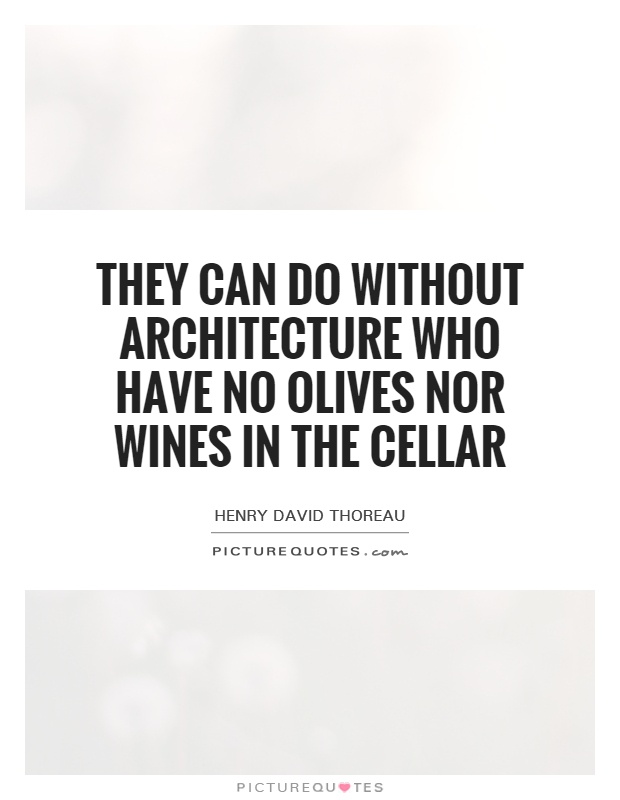They can do without architecture who have no olives nor wines in the cellar

They can do without architecture who have no olives nor wines in the cellar
Henry David Thoreau, the renowned American philosopher, naturalist, and writer, was known for his deep connection to nature and his belief in simple living. In his famous work, Walden, Thoreau explores the idea of living deliberately and finding fulfillment in the natural world. One of his most famous quotes, "They can do without architecture who have no olives nor wines in the cellar," speaks to his belief in the importance of simplicity and the natural world.Thoreau believed that true happiness and fulfillment could be found in the simple pleasures of life, such as enjoying the fruits of the earth like olives and wines. He saw architecture as a symbol of excess and materialism, something that was unnecessary for those who found joy in the natural world. For Thoreau, the beauty of nature was far more valuable than any man-made structure.
In Walden, Thoreau famously lived in a small cabin near Walden Pond, where he spent two years living a simple and intentional life. He found solace in the natural world, spending his days exploring the woods, observing wildlife, and contemplating the meaning of life. Thoreau believed that by immersing oneself in nature, one could find peace, clarity, and a deeper connection to the world around them.
Thoreau's quote about olives and wines in the cellar speaks to his belief that true happiness can be found in the simple pleasures of life. He saw the natural world as a source of abundance and beauty, far more valuable than any material possession. For Thoreau, architecture was a symbol of excess and unnecessary luxury, something that could be done without for those who found joy in the natural world.












 Friendship Quotes
Friendship Quotes Love Quotes
Love Quotes Life Quotes
Life Quotes Funny Quotes
Funny Quotes Motivational Quotes
Motivational Quotes Inspirational Quotes
Inspirational Quotes